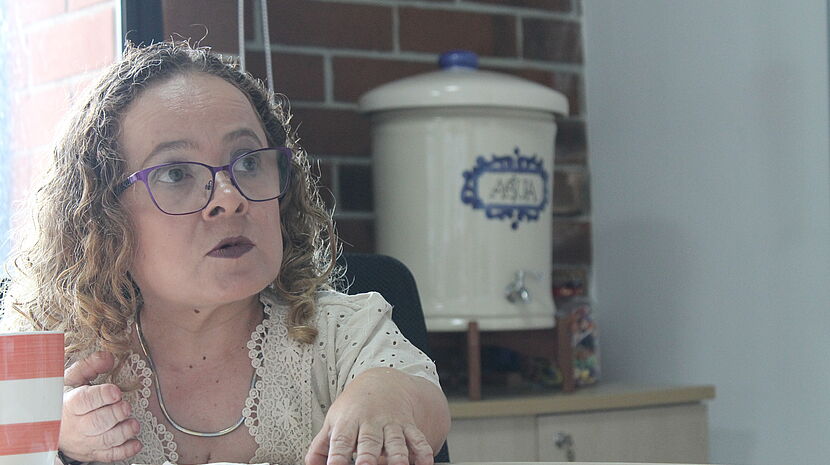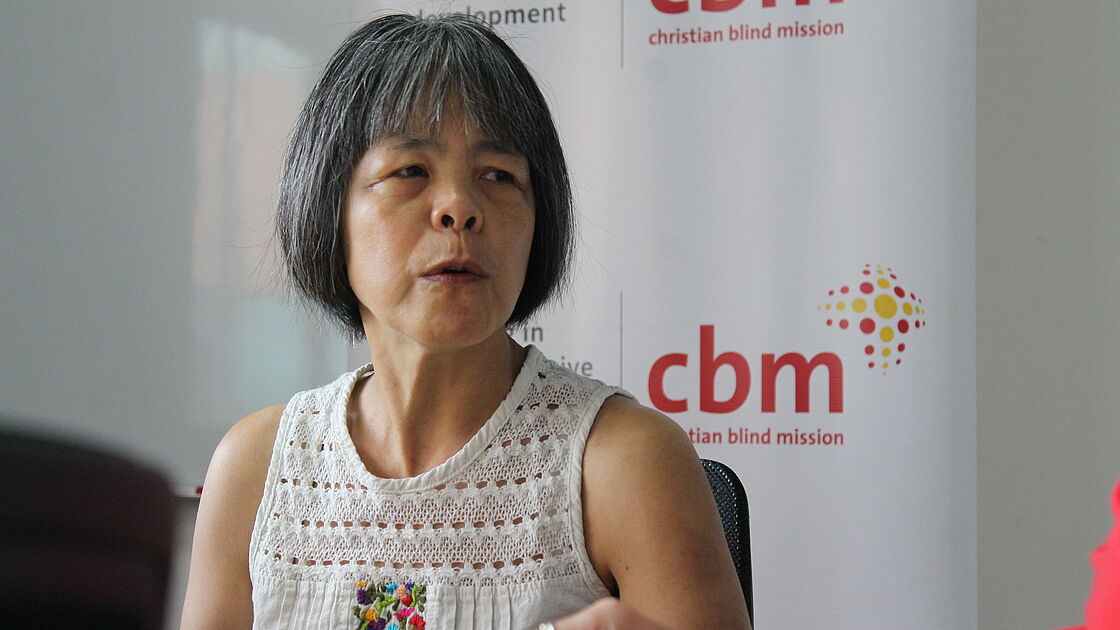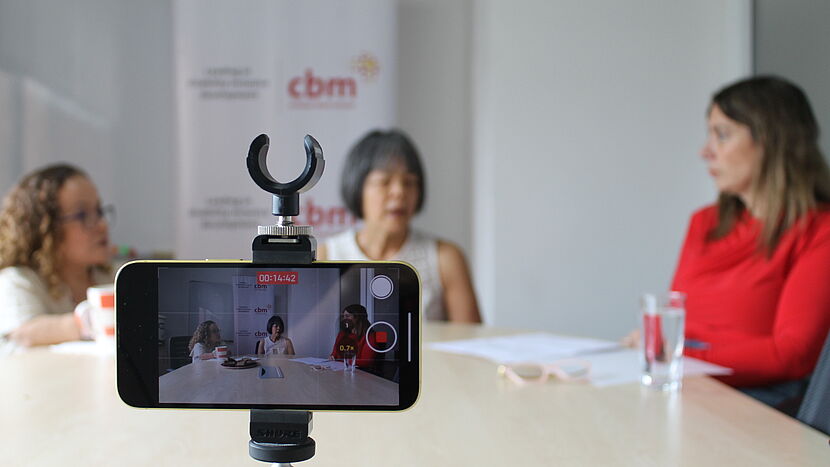International Women’s Day 2024:
Empower Every Woman with Disabilities

Rosidalia Aldana, 48, is the founder and director of the Association of Small People in Guatemala. From this association, she campaigns for the rights of small people, in particular for access to specialised services for small women.
"Today is about standing up for women's rights and not about reinforcing traditional roles."
Today, on International Women’s Day, CBM emphasises the importance of adopting an intersectional approach to address the challenges faced by women with disabilities. An intersectional approach ensures that no one is left behind. It recognises that the barriers and experiences of women with disabilities are not only related to their disability or gender, but also to other aspects of their identity. It ensures that communities and movements take differences into account and work together towards a just society.
In our CBM office in Guatemala, disability rights activists Silvia Quan and Rosidalia Aldana talk about the complexity and richness of the experiences of women with disabilities. The two advocate for the rights of persons with disabilities in Guatemala.
This year's theme for International Women's Day, "Inspire Inclusion", is in line with CBM's fundamental ethos of improving the quality of life of persons with disabilities.
The insights of Silvia Quan and Rosidalia Aldana emphasise the critical need for inclusion that goes beyond mere physical accessibility, advocating for a deeper understanding and recognition of the diverse experiences, identities and challenges of women with disabilities.
Our health, education, rehabilitation and community-based inclusive development programmes are tailored to the specific needs of women with disabilities. CBM is also committed to reducing the prevalence of debilitating diseases, minimising the conditions that lead to disability and promoting equal opportunities.
Understanding diversity and inclusion
Silvia, a blind woman of Chinese descent, emphasises how important it is to recognise the diversity among women with disabilities.
"We come from various backgrounds, ages and walks of life," she shares. "It's important to understand that our experiences of disability are not the same because of these different identities"
This intersectionality, Silvia argues, should be the lens through which we view and develop programmes to empower and include persons with disabilities. Drawing from her experience, she says that the challenges she has faced highlight the need for an approach that recognises how different layers of identity can intersect and impact women with disabilities in unique ways.
Rosidalia contributes to the discussion by highlighting the social constructs and family roles that shape our identities.
"We must never forget the diversity within our ranks," she says. "Whether age, rural or urban background or access to education, these factors play a crucial role in our lives and should not be overlooked."
The path to empowerment
In discussing initiatives that are critical to the well-being and empowerment of women and girls with disabilities, Rosidalia points to the significant gaps in the government and policy agenda. "There is a lack of comprehensive programmes that address not only academic training but also skills development for economic activities," she notes, emphasising that the underrepresentation of women in the economy is a form of violence.
Silvia points out that girls and women with disabilities must be aware of their sexual and reproductive rights and have access to education and information.
"The taboo surrounding these issues, as well as the stigma of disability, create barriers that are difficult to overcome," she says, emphasising the importance of inclusion in health and education programmes.
Legal framework and the way forward

Silvia Quan, 55, a visually impaired woman, is a well-known activist in Guatemala for her contribution to the defence and promotion of the human rights of girls and women. She is currently President of Collective Vida Independiente.
Both advocates emphasise the urgency of updating the legal framework to bring it in line with the Convention on the Rights of Persons with Disabilities.
"The laws we currently have are outdated and do not fully recognise our rights," explains Silvia. The pursuit of modern, inclusive legislation requires the allocation of budgetary resources for the effective implementation of these laws.
On International Women's Day, the message is clear:
"Today is about standing up for women's rights and not about reinforcing traditional roles" Silvia emphasises the importance of recognising women with disabilities as part of the wider discussion on women's rights.
Rosidalia leaves us with a poignant reflection: "Remind yourself every day: 'I am a woman, I am valuable, and I matter.' Let this statement guide you as we recognise our worth and stand up for our rights."
CBM continues to advocate for inclusion. The stories of Silvia Quan and Rosidalia remind us that when we celebrate womanhood in all its forms, we pave the way for a world in which every woman, regardless of her abilities, can aspire to a life of dignity, opportunity, and joy.
